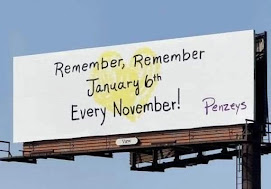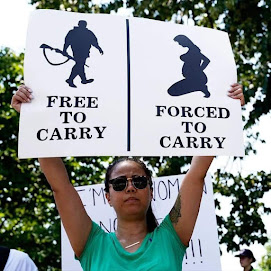It's a sad statement that our Mexican friends to the south appear more progressive than we do when it comes to drug usage. You want to decrease violence associated with drugs? Allow cultivation and decriminalize it!!
You know, I'm still waiting for some "change I can believe in." So far, it seems a lot of cosmetics and little else. Hey, nef, can you give me some "hope" that I can hang my hat on?
Mexico will decriminalize some drug use
By TRACY WILKINSON Los Angeles Times
June 21, 2009, 10:50PM
MEXICO CITY — Could Mexican cities become Latin Amsterdams, flooded by drug users seeking penalty-free tokes and toots?
That is the fear, if somewhat overstated, of some Mexican officials, especially in northern border states that serve as a mecca for underage American drinkers.
The Mexican legislature has voted quietly to decriminalize the possession of small amounts of pot, cocaine, methamphetamine and other drugs, an effort that in the past has proved highly controversial.
There has been less protest this time around, in part because there hasn’t been much publicity.
Some critics have suggested that easing the punishment on drug possession sends the wrong message at a time when President Felipe Calderon is waging a bloody war on major narcotics traffickers. The battle between law enforcement authorities and drug suspects has claimed more than 11,000 lives in the past 2.5 years.
But it was Calderon himself who proposed the decriminalization legislation.
His reasoning: It makes sense to distinguish between small-time users and big-time dealers, while re-targeting major crime-fighting resources away from the former and toward the latter and their drug lord bosses.
“The important thing is ... that consumers are not treated as criminals,” said Rafael Ruiz Mena, secretary general of the National Institute of Penal Sciences. “It is a public health problem, not a penal problem.”
The legislation was approved at the height of a swine-flu outbreak in Mexico that dominated the world’s attention. Meeting at times behind closed doors — the better to prevent the spread of disease, officials said — the lower and upper houses of Congress passed the bill on the last days of April. It awaits Calderon’s signature.
The bill says users caught with small amounts — five grams of marijuana, 500 milligrams of cocaine — clearly intended for “personal and immediate use” will not be criminally prosecuted. They will be told of available clinics and encouraged to enter a rehabilitation program.
As many as 40 milligrams of methamphetamine, a synthetic and especially harmful drug, are permitted, as are as many as 50 milligrams of heroin.
In May of 2006, then-President Vicente Fox, from Calderon’s right-wing party, vetoed a similar bill Congress had approved and that he initially supported. He backed down only under pressure from Washington, D.C., where the Bush administration complained decriminalization for even small amounts could increase drug use.
Political implications
But with less than a month to go before critical mid-term elections in which his party is struggling to maintain control of Congress, Calderon cannot afford to be seen as bowing to the U.S., analysts say. Already under intense criticism for the drug-related violence terrifying parts of the country, Calderon needs to maintain good relations with Congress, where much of the opposition voted in favor of the decriminalization initiative. He can’t suddenly go back on his own bill.
And so, political observers say, he probably will sign it into law. Calderon’s office did not comment for this story.
So far, the U.S. government has not publicly objected to the bill. Michele Leonhart, acting director of the U.S. Drug Enforcement Administration, however, said in April that legalization of drugs “would be a failed law enforcement strategy for both the U.S. and Mexico.”
Mexican government officials stress they are not talking about legalization, but decriminalization. Until now, courts decided on a case-by-case basis whether and how to punish first-time offenders. And standard criteria for quantities hadn’t existed.
Mexico is woefully underequipped to handle a booming drug-abuse problem. Recently, domestic consumption has soared. A 2007 study by the government found the number of “addicts” doubled in the previous five years.
The original story is here. I clipped out the usual fearmongering.
Never pass up a chance to sit down or relieve yourself.
-old Apache saying
Subscribe to:
Post Comments (Atom)
He's always watching

























No comments:
Post a Comment